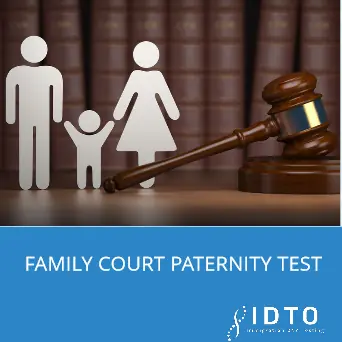Family court paternity testing is a process conducted by the instruction of a Family Court Judge to help establish the paternity of a child. In this post, we will provide some clarity on whether a paternity test can be performed without a court order.
How to start a paternity case
Before starting a paternity case. It is recommended that you consult a Family Law Attorney to ensure you understand all the possibilities you are faced with based on your unique circumstances.
File a paternity petition with the family court. If your petition is accepted a court order will be sent to the respondent. The respondent can be either the alleged father or the mother
Either the mother, legal guardian, or Social Services if the child is receiving public assistance, or the alleged father can file a petition.
Not all petitions will be accepted by the Family Court.
Information on how to get a paternity test through family court
To file a paternity petition in New York State (NYS), you will need to follow these steps:
1.Gather necessary information: Collect all relevant information about the child, the alleged father, and any other parties involved in the case. This includes names, addresses, dates of birth, and any supporting documents or evidence.
2. Acquire a paternity petition form from this website https://www.nycourts.gov/courthelp/DIY/paternity.shtml.
Make sure you read the instructions carefully if you are going to do it yourself.
3. Once you file your petition and the courts accept the petition a court order will be sent to the Respondent.
It is should be noted that paternity petition’s can also be filed by Attorneys, Lawyers, A legal services agent or Low Bono programs. Please consult with a legal representative to make sure your understand your options.
Please note, that paternity testing performed through family court have an average turnaround time of 8 weeks or more.
Performing a paternity test privately your DNA results will be completed in 2 to 3 business days from the date the lab receives all genetic samples
Do I need to start a paternity case to perform a DNA paternity test?
No, Performing a paternity test does not require you to file a paternity petition for a court hearing to establish paternity.
In order to perform this type of test. It will take both the alleged father and mother of the child to agree on performing a paternity test if DNA test is to take place.
The DNA results will accepted and recognized if your DNA samples are tested and analyzed by an AABB Accredited Lab and NYSDOH (New York State Dept of Health) certified laboratory.
If legal paternity test results are obtained by a lab that is not recognized by the state. The odds of you performing another paternity test is likely and the Judge may reject your DNA results.
If either party refuses to perform a paternity test then the only option to establish paternity is filing a paternity petition with Family Court.
Please note, this option does not apply to married couples. With married couples the legal father is the husband and if the child is not biologically related to the husband. A Judge will deem the husband as the legal guardian of the child unless the husband is formally notified by the court to appear at a hearing and the husband agrees to relinquish his rights as the guardian of the child.
Can married couples perform a paternity test?
Yes. Because a husband is deemed the legal father of a child born into a marriage. A husband can perform a paternity test with his child.
Normally, paternity testing with married couples is performed when the couple is going through a divorce.
Are there any ramifications for performing a paternity test without a court order?
When performing a paternity test you are submitting your results as evidence. If the mother is available we recommend she participate in the DNA Testing process. The mother’s involvement will be consistent with the requirements set forth by the state.
Having the mother involved in the paternity test will increase the accuracy of your DNA test.
Outside of not using an accredited laboratory recognized by NYS. A Family Court Judge will accept your DNA results as evidence for paternity establishment.
Conclusion
There are two ways paternity test results can be used and submitted as evidence to Family Court.
1. DNA results can be performed by court order. This option depending on the circumstance may be performed through state.
Pros
Performing genetic testing through the state is an excellent option when one party refuses to participate in performing a DNA Test. Please remember, that genetic tests are not mandatory they are voluntary. If a disagreeable party opts to ignore or disregard the court order there will be a consequence of being held in contempt of court.
The state may cover the cost of your DNA Test or you may pay a partial cost.
Cons
1. The process of filing the paperwork and waiting for your to be released is long.
2. Private DNA testing can be performed before a court order is issued and you can choose a DNA Testing company like IDTO to help you remain compliant with New York State Paternity guidelines.
Contact call IDTO at 347-735-5490 to schedule a legal paternity test appointment.
Pros
The turnaround time for your results to be completed is quick. This option allows for you to submit your DNA results as evidence after filing your petition at your court hearing.
Cons
If one party does not want to perform a paternity test the likelihood they would more than likely never. A court order may make the disagreeable person reconsider but paternity testing is voluntary and not mandatory. Even if a court order is issued the disagreeable person can choose to ignore an order from the court but not responding does come with a consequence.
The cost of your paternity test starts at $350.00 which is more expensive than the state paid for tests.
However, The turnaround times, accountability, and service are more when working with DNA Testing companies like IDTO.
Please remember that this post’s information is intended for unmarried couples. The laws for married couples are different for paternity establishment.
Regardless of the option you decide to choose it is recommended that you consult with a Family Law Attorney to ensure you understand Paternity Law in New York State.



